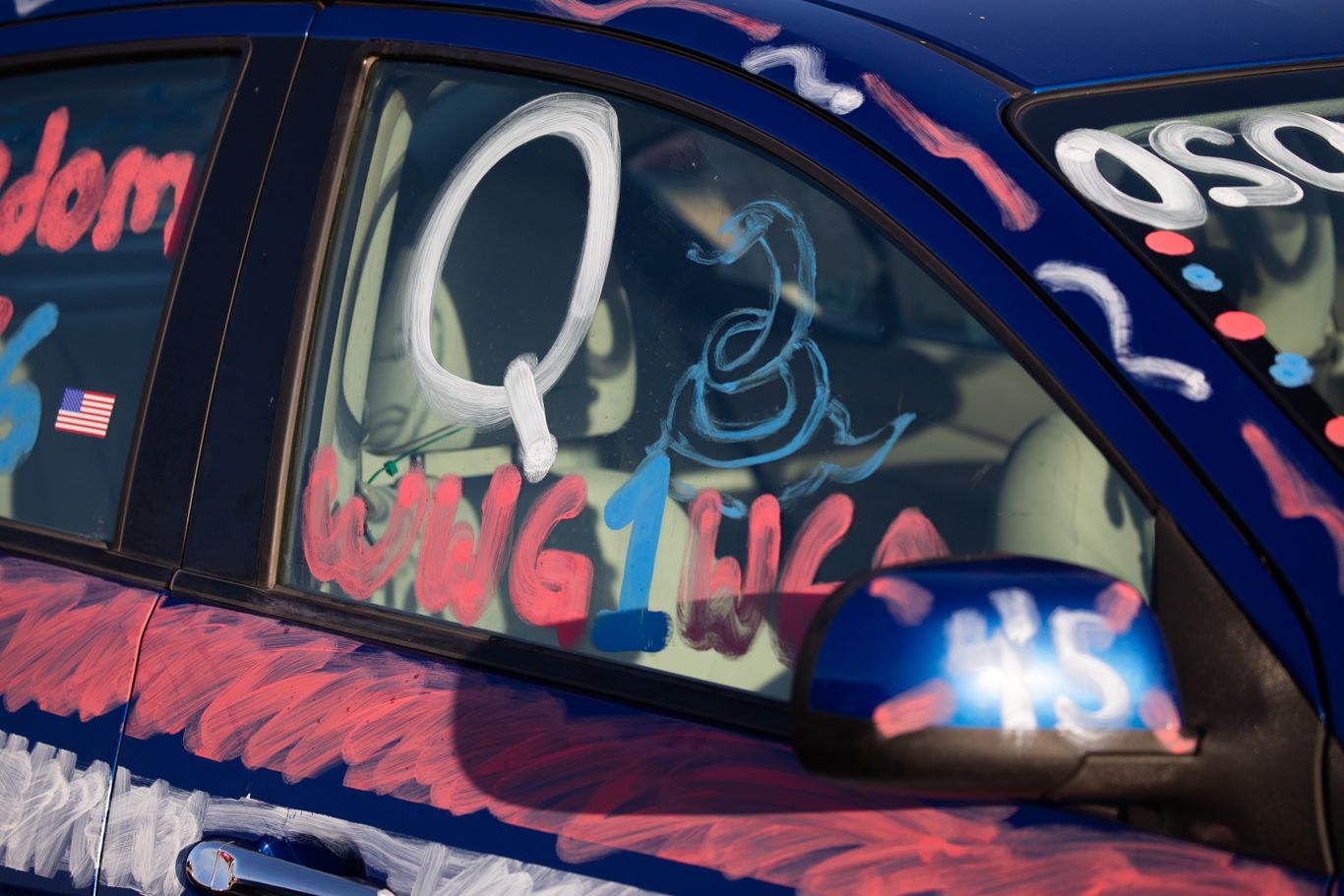Poll: One-third of Americans are open to QAnon conspiracy theories

More than one-third of Americans think it’s possible that elites in Hollywood, government and the media “are secretly engaging in large scale child trafficking and abuse,” according to new polling for a U.K.-based anti-racism advocacy group reviewed by Axios.
The big picture: New findings by the group HOPE not Hate show 1 in 10 Americans say they are at least “soft” supporters of the QAnon conspiracy theory movement and suggest that distrust in U.S. political systems could fuel further unrest in a fraught election year.
- 1 in 4 agree it would be “perfectly acceptable” for President Trump to refuse to accept the election results if they’re close. QAnon proponents tend to support Trump, and they’ve been pushing a narrative that voting by mail is a scheme by Democrats to steal the election.
- The findings about Americans’ openness to conspiracy theories about child trafficking and abuse suggest that a large subset of Americans may believe in some of the major conspiracies of QAnon even if they don’t embrace the group by name.
- The poll uses a statistical technique called “multilevel regression with post-stratification” (MRP), which has been gaining attention in recent years for its effectiveness in helping to project the outcomes of presidential elections.
By the numbers: Only 28% of respondents said they outright oppose QAnon. The majority were unsure or said they neither support nor oppose it.
- Similarly, a recent Pew Research Center study found 20% of people who had heard of QAnon thought it was somewhat or very good for the country, but more than half did not know about it.
- Adults younger than 35 were more likely to say they support QAnon than older people — likely because of the very online nature of the conspiracy theory.
- Georgia, Mississippi and Louisiana had the highest share of QAnon believers — 12%–14%.
The bottom line: HOPE not Hate founder Nick Lowles tells Axios, “One of the key things that stood out in the data research was that democracy is really fragile.”
Methodology: The analysis is based on online polling of 15,400 people from three separate surveys conducted by Focaldata and Hanbury Strategy on Sept. 4–16, 5–8 and 24–29, using multilevel regression with poststratification (MRP).
- MRP is a statistical technique for estimating public opinion in small geographic areas or subgroups using national opinion surveys. It takes in polling data and then filters it through demographic profiling, using Census and other open source data, to produce final results.
*** This article has been archived for your research. The original version from Axios can be found here ***


